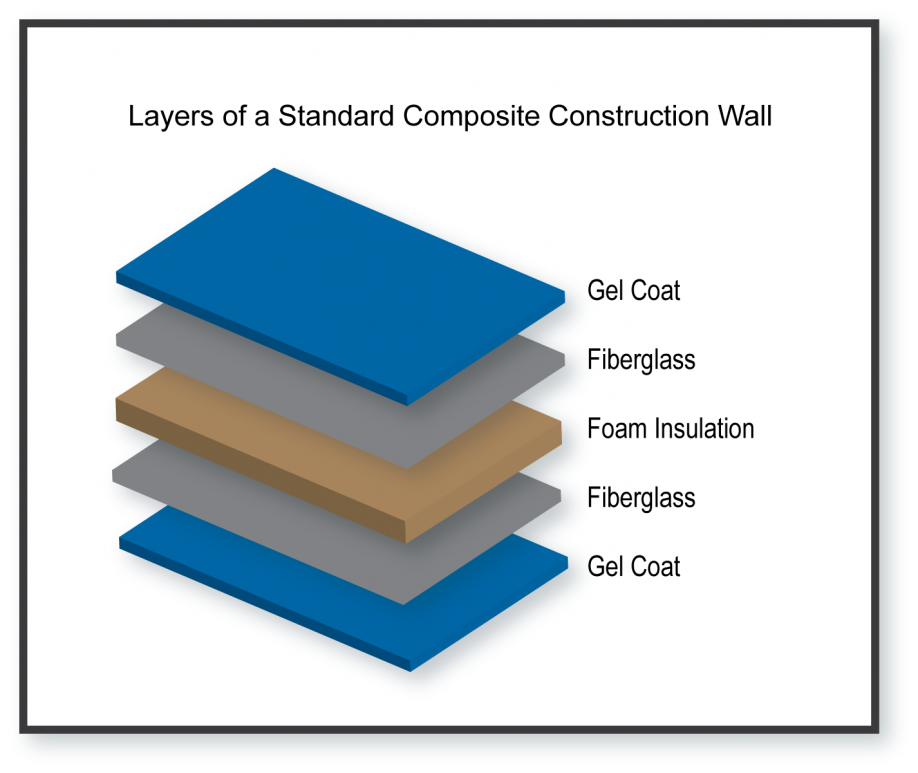Composites: The Key to Modern, Lasting Construction
Composites: The Key to Modern, Lasting Construction
Blog Article
Discovering the Uses and Advantages of Recycled Composites in Modern Industries
In today's rapidly advancing industrial landscape, the usage of recycled compounds has garnered increasing focus for its potential to redefine traditional manufacturing methods. The amalgamation of recycled products with sophisticated composite technologies provides an appealing method for improving sustainability, durability, and cost-efficiency throughout numerous sectors. As sectors seek innovative services to resolve ecological worries and improve functional efficiencies, the consolidation of recycled composites emerges as an engaging choice. This shift towards sustainable practices not just lines up with international conservation efforts however likewise provides a myriad of benefits that hold the secret to forming the future of contemporary production techniques.
Environmental Advantages of Recycled Compounds
The application of recycled compounds in modern-day industries supplies substantial ecological benefits, adding to the decrease of waste and the preservation of all-natural sources. By including recycled compounds into making procedures, sectors can reduce their reliance on virgin products, thus decreasing the quantity of waste generated and the energy needed for removal and production. This shift in the direction of using recycled composites helps in drawing away materials from land fills, minimizing the burden on waste management systems, and decreasing greenhouse gas exhausts related to conventional production practices.
Additionally, using recycled compounds promotes the conservation of natural resources such as lumber, minerals, and water, which are typically diminished with the extraction and handling of basic materials (composites). By extending the life expectancy of products through recycling, industries can assist maintain ecosystems and biodiversity by lowering the need for new sources. Generally, the adoption of recycled composites in contemporary industries plays a vital duty in promoting sustainability and mitigating the ecological effect of manufacturing processes
Enhanced Sturdiness in Product Production
With a concentrate on durability and toughness, integrating recycled composites into product manufacturing procedures boosts sturdiness and sustainability. By making use of recycled composites, makers can develop items that are not just solid however also immune to tear and wear, making them suitable for long-term usage in different markets. The combination of different materials in recycled compounds can often cause improved toughness and durability contrasted to standard products, supplying an affordable option for generating resilient items.
Among the essential benefits of utilizing recycled compounds in item manufacturing is the capacity to tailor the product buildings to satisfy specific longevity needs. By changing the structure and manufacturing techniques, makers can tailor the recycled composites to endure extreme environmental conditions, hefty lots, or constant usage without endangering on efficiency. This versatility in style and manufacturing enables the creation of extremely long lasting products that maintain their stability over time, reducing the demand for regular substitutes and ultimately adding to a much more lasting manufacturing procedure.
Cost-Effectiveness and Financial Benefits
Including recycled compounds into product production not only boosts toughness and sustainability yet also offers considerable cost-effectiveness and financial benefits. Using recycled composites can result in decreased product costs as recycled materials are usually much less pricey than virgin products. Furthermore, recycling composite products can reduce waste disposal expenses and lower the demand for landfill composites area, contributing to general cost financial savings for industries.

Advancement and Layout Flexibility With Recycled Composites
Utilizing recycled compounds in modern-day markets provides exceptional chances for advancement and style versatility. By integrating recycled products into composite manufacturing processes, companies can press the borders of traditional design restraints and explore new possibilities. The flexibility of recycled composites enables the creation of intricate forms and structures that may not be achievable with conventional products.
One of the vital advantages of recycled composites is their capability to be molded right into different kinds, providing designers the flexibility to experiment with unique sizes and shapes. composites. This adaptability opens up a world of imaginative possibilities, making it possible for the development of lightweight yet durable products that satisfy the details needs of various sectors
Furthermore, using recycled composites advertises lasting techniques and sustains the circular economic situation by site minimizing waste and decreasing the ecological effect of producing procedures. This focus on eco-friendly style options straightens with the growing pattern in the direction of sustainability in modern sectors, making recycled composites a useful source for forward-thinking and cutting-edge business.
Applications Across Various Industries
Recycled compounds find diverse and impactful applications across a vast variety of markets due to their unique homes and sustainability benefits. The aerospace sector benefits from recycled composites in the manufacturing of airplane components, where the products' strength-to-weight proportion is vital for making certain safety and performance. The flexibility and sustainability of recycled compounds make them important across numerous sectors, driving innovation and ecological stewardship.
Final Thought
Finally, the use of recycled compounds in contemporary industries uses substantial environmental benefits, enhanced longevity in product production, cost-effectiveness, and economic benefits. In addition, using recycled composites enables development and layout flexibility throughout numerous industries. In general, the adoption of recycled composites presents a useful and sustainable option for fulfilling the demands of the market while also reducing ecological effect.

One of the crucial advantages of making use of recycled compounds in item manufacturing is the capacity to tailor the material residential or commercial properties to satisfy particular toughness demands. Using he has a good point recycled composites can lead to reduced material costs as recycled products are usually less costly than virgin materials. The aerospace market benefits from recycled composites in the manufacturing of aircraft components, where the materials' strength-to-weight ratio is vital for guaranteeing security and efficiency.
Report this page